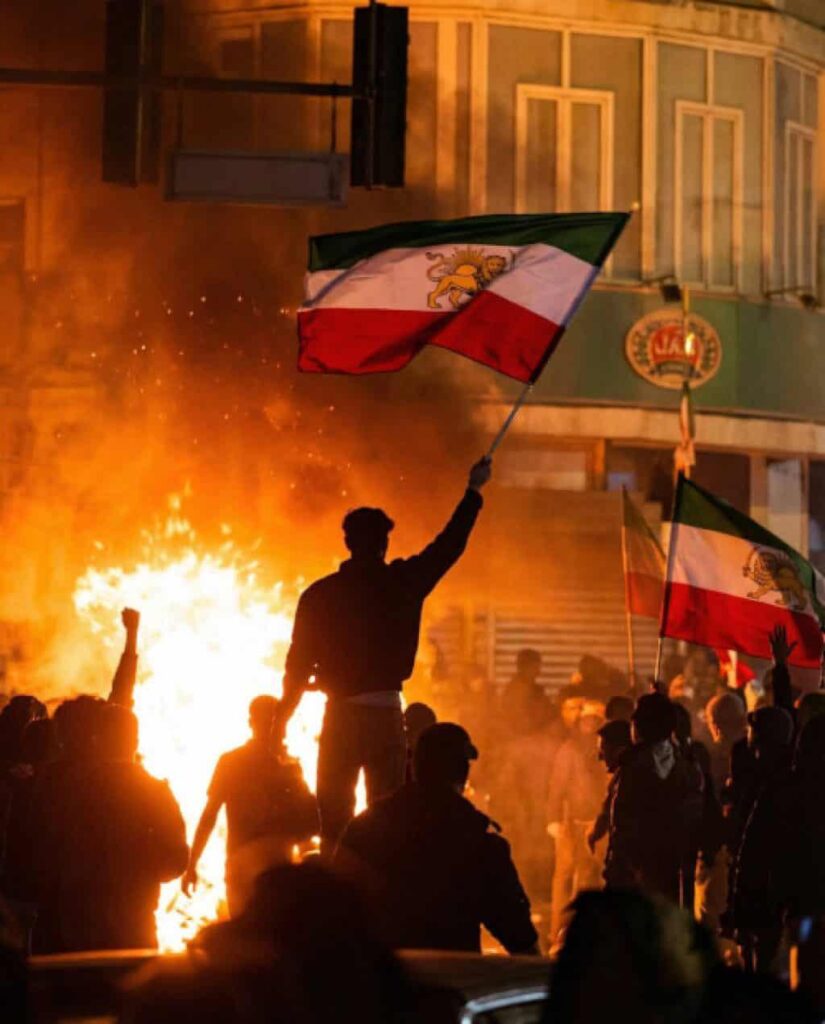As a rule, religious manifestos should be received with sufficient skepticism, as they can be subversive to the democratic process. The essence of a liberal democracy is the separation between Church and State, for the obvious matter that in a diverse society policy-makers ought to be making their decisions on rational, impartial grounds, one that takes the considerations of all citizens. Often religious manifestos can prioritise particular religious grievances over what is good for the majority. They can also be divisive, narrow in mandate, and can “other” different groups within the society. These religious groups often emphasize foreign affairs and can drown out the discussion on everyday British matters that concern the vast majority. It is with this skepticism that we wanted to review the Hindu manifesto, and ask those who championed it, why they felt it was necessary.
We asked Trupi Patel, President of the Hindu Forum of Britain, who told us: “ The document highlights the importance of Hindu aspirations in the political fabric of British society and inform the future Parliamentarians about the rightful needs of the community”. Rajnish Kashyap, the General Secretary of the Hindu Council (UK), another Hindu umbrella body said: “This document aims to maintain the community’s religious and cultural practices”. Echoing similar thoughts, and adding how this document would be helpful for the community itself, Mr. Dhiraj Shah, President of Hindu Swayamsevak Sangh (UK) said: “The Hindu community in the UK is well integrated, law-abiding, and a net contributing community to every sector of national life, beyond its numbers. While these are positive points, several community concerns have not been properly addressed. Faith-based consultation is a part of the policy-making framework of the United Kingdom’s democratic tradition. Therefore, this manifesto is a democratic instrument for Hindus in the UK to engage with politicians. This will give the government clear guidance on the needs of the Hindu community. The particular community-specific aspirations mentioned in the seven themes of the manifesto are in addition to general aspirations like access to healthcare and controlling inflation, which concern all the residents living in the UK.”
A national team member of INSIGHT UK, a group representing the Hindu and Indian community mentioned that “Hinduphobia or Anti-Hindu hate is on the up in the UK, as we all saw during the Leicester unrest”. To further support this point, Insight UK also referred to a 2023 report on ‘Anti-Hindu Hate in Schools in the UK’ commissioned by the Henry Jackson Society. They went on to tell us, “The manifesto provides a working definition of ‘Anti-Hindu hate’, which may be adopted, or discussion may start around it to define and recognise it as a religious hate-crime. Recognition of Hindu-hate, as a hate crime is one thing, but the manifesto also asks that anyone involved in Hindu-hate be prosecuted and an organisation that spreads Hindu-hate even proscribed. The Muslim Council of Britain is another body that has been championing Islamophobia along the same grounds and has also been criticised for trying to shut down fair criticism. What those who are behind the new Hindu manifesto seem to be pointing towards is that whereas the Police and the wider British State seem to recognise Antisemitism and Islamophobia, Hindu-hate is a relatively unknown concept and not logged, and therefore remains invisible.
The second theme concerns the protection of Hindu places of worship (Mandirs). The document refers to the special security schemes framed by the UK government for the protection of places of worship for Jews and Muslims. As cited by the manifesto, these schemes grant GBP 117 million for the protection of the Mosques and GBP 70 million for the protection of Synagogues. The manifesto demands a similar special protection scheme for the protection of Hindu Mandirs, particularly in the light of attacks on Hindu mandirs in the recent past. A spokesperson of ‘Hindu Mandir Network’ said “without disputing the necessity of a special protection scheme for other places of worship, we expect that it is recognised that Hindu Mandirs are equally at risk from Hate-crimes and therefore equal and appropriate special financial support should be provided.”.
We asked young Hindus too, about their involvement in the creation of the Hindu Manifesto. We asked Nikita Trivedi, Sabbatical Officer at the National Hindu Students’ Forum (NHSF UK), who said that “everyone knows that education is the most important thing for any Hindu parent. We literally worship knowledge. It seems only fair that the State recognises that the Hindu community also has challenges around access to good schools.” Asmita Bhudia, a representative of the Hindu Education Board (HEB), and a teacher herself, told us “that there is a pressing need for a comprehensive and accurate representation of Hinduism in Religious Education (RE) within UK schools”. Hindu children in the UK seldom have a choice to pick up their own religious tradition to study at higher levels. Additionally, text books and information on teaching Hinduism is patchy at best, and rather non-existent in many places. It seems perfectly reasonable to highlight the need for fair access, and additional resources to help produce better, more accurate material for teachers, coupled with adequate training.
The issue of immigration has also been raised in the Hindu Manifesto (UK), somewhat bizarrely. There are three asks in the document: First, to streamline the visa process for Hindu priests to be allowed into the country who are often caretakers of some of the 380 Hindu temples across the country. Mr. Rajnish Kashyap from Hindu Council UK and Chairperson of Vishwa Hindu Kendra Mandir Southall noted that “Hindu temples in the UK often struggle to locally find qualified priests well-versed in necessary rituals, traditions, and languages”. Second, to allow dependents, mostly elderly parents of those highly-skilled migrants that have settled in the UK, and many have even become British citizens. Here the challenge seems to be around the fact that many of these highly skilled migrants have children born in the UK, with aging parents back in India, with no one to take care of them. What we managed to glean from the authors of the report is that the UK immigration authorities should make it easier to bring elderly parents into the UK. Many Hindus from India, when we spoke to them, were even accepting of the fact that they would be willing to use private healthcare and social care for their parents so the NHS is not further burdened.
The manifesto has been endorsed by around two dozen candidates contesting the 4th July election. As mentioned on the manifesto website, these candidates are from across the parties. Similar to this, several candidates are also endorsing manifestos of other faiths. Once the elections are complete and the candidates enter Parliament as its members, it would be interesting to revisit these manifestos and see how the new MPs would deliver on the promises they are making through these endorsements.



